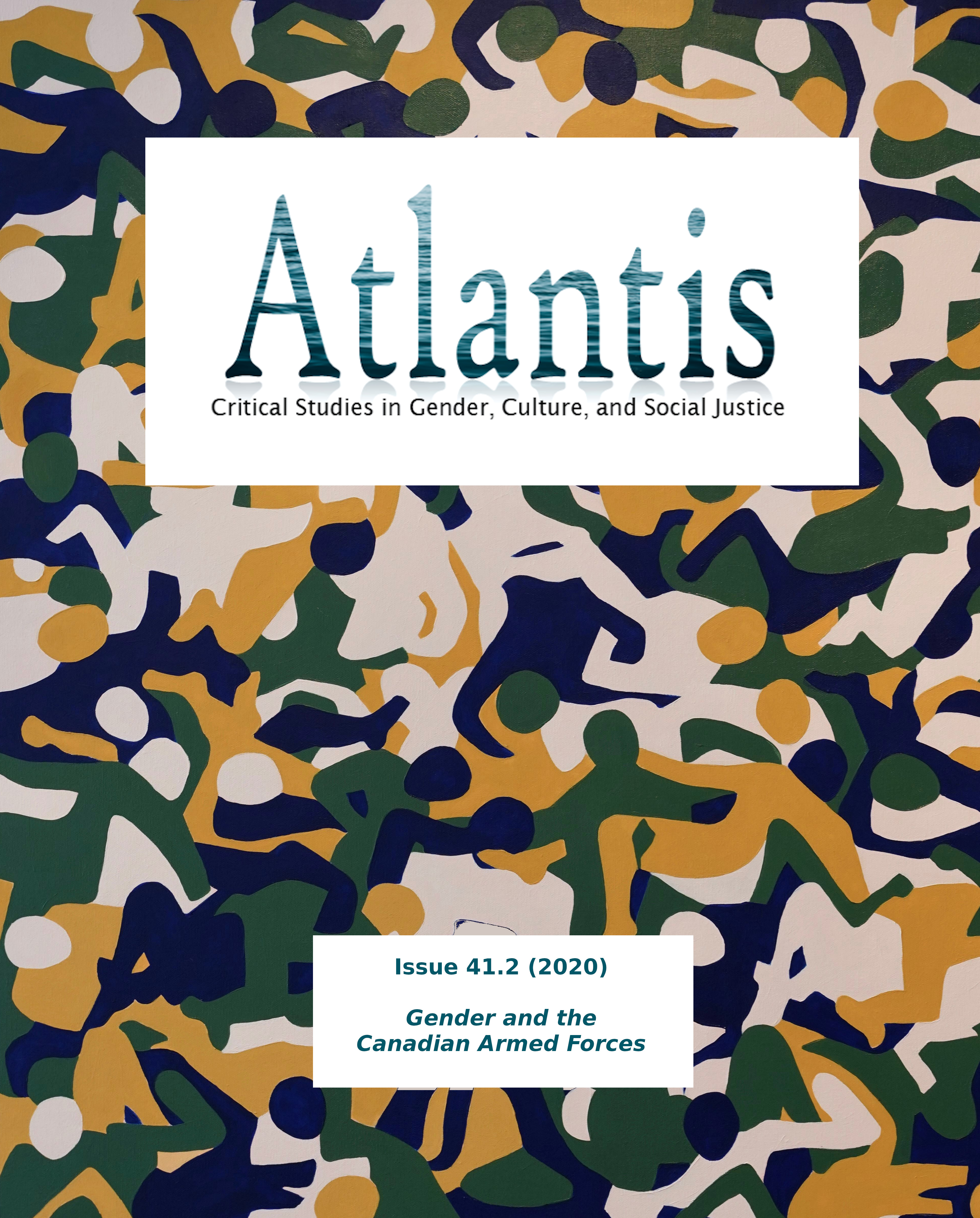Missing the Point: A Critical Reflection on Operation HONOUR and Reactions to Military Sexual Misconduct by Veterans of the Canadian Armed Forces
Keywords:
Canadian Armed Forces, ethnography, military culture, military masculinity, sexism, sexual misconductAbstract
While there has undoubtedly been progress made in regards to the inclusion of women and LGBTQ+ individuals as full members of the Canadian Armed Forces (CAF), it is questionable as to whether the organizational culture has shifted since these efforts were initiated almost thirty years ago. This article argues that resistance to culture change is based in sexist beliefs and attitudes, which are most noticeable in discussions related to Operation HONOUR, the CAF initiative meant to purposefully change military culture in an effort to eliminate sexual misconduct. The article critically reflects on how the CAF has presented results from surveys aimed at examining the beliefs and perceptions of current serving members in regards to sexual misconduct in the military. It argues that the CAF is missing key points of analysis, particularly in failing to identify and analyse the beliefs, attitudes, and behaviours that make up a problematic and misogynistic military culture. To address this, the article presents a taxonomy of sexism to help understand the attitudes of soldiers and veterans. Based on this taxonomy and informed by long-term and ongoing ethnographic research, the article then outlines a spectrum of behavioural archetypes, namely: (1) allyship to victims, (2) willful blindness to the prevalence of and harms caused by military sexual misconduct, and (3) a negative and misogynistic response tied to what has been termed as toxic masculinity. Understanding these behaviours and their embeddedness in veterans’ self-perceptions and the military’s culture is key to achieving CAF culture change in the context of systemic sexual misconduct.
Downloads
Published
Issue
Section
License
Copyright (c) 2020 Walter Callaghan

This work is licensed under a Creative Commons Attribution 4.0 International License.
Authors who publish with this journal agree to the following terms:
1. Authors retain copyright and grant the journal right of first publication, with the work simultaneously licensed under a Creative Commons Attribution 4.0 International License that allows others to share the work with an acknowledgement of the work's authorship and initial publication in this journal.
2. Authors are aware that articles published in Atlantis are indexed and made available through various scholarly and professional search tools, including but not limited to Erudit.
3. Authors are able to enter into separate, additional contractual arrangements for the non-exclusive distribution of the journal's published version of the work (e.g., post it to an institutional repository or publish it in a book), with an acknowledgement of its initial publication in this journal.
4. Authors are permitted and encouraged to preprint their work, that is, post their work online (e.g., in institutional repositories or on their website) prior to and during the submission process. This can lead to productive exchanges, as well as earlier and greater citation of published work. Read more on preprints here.







